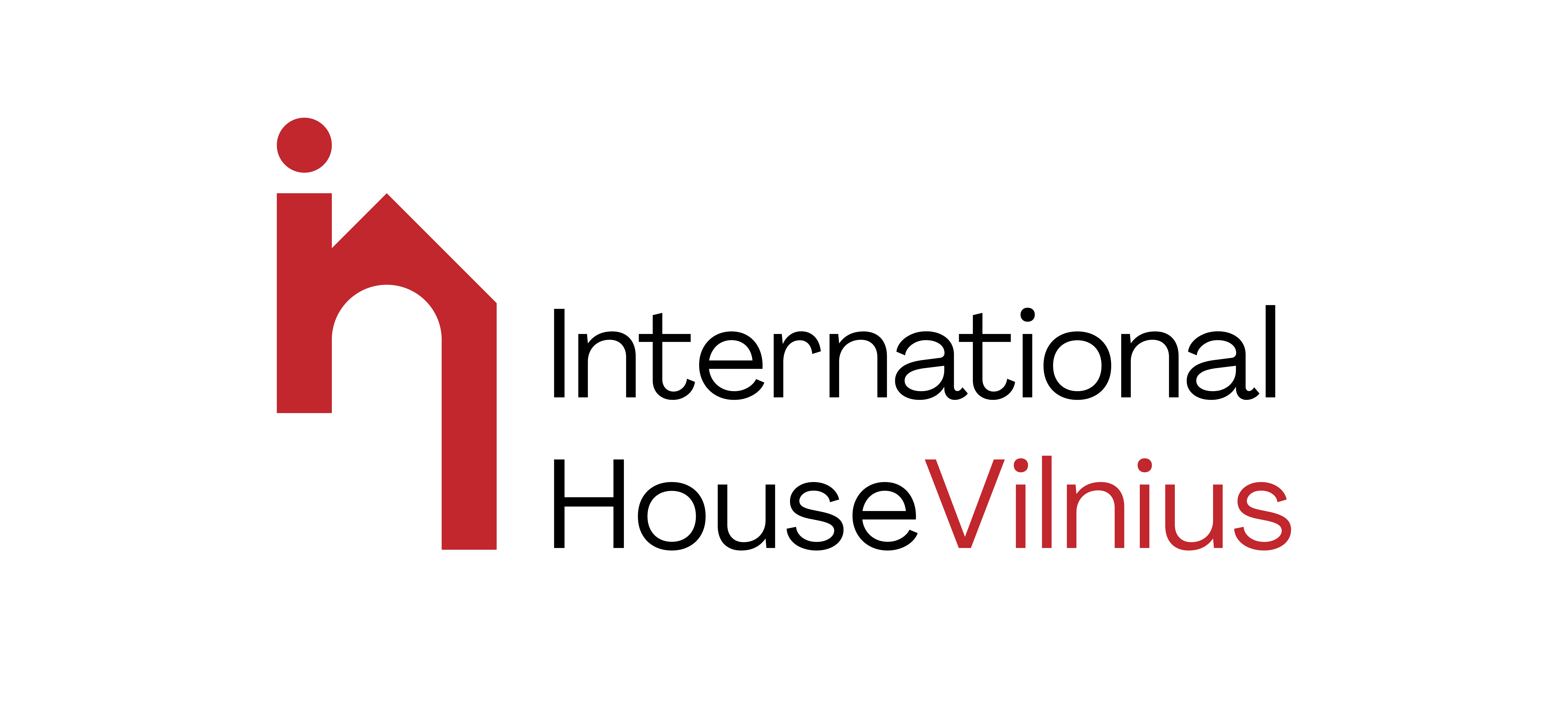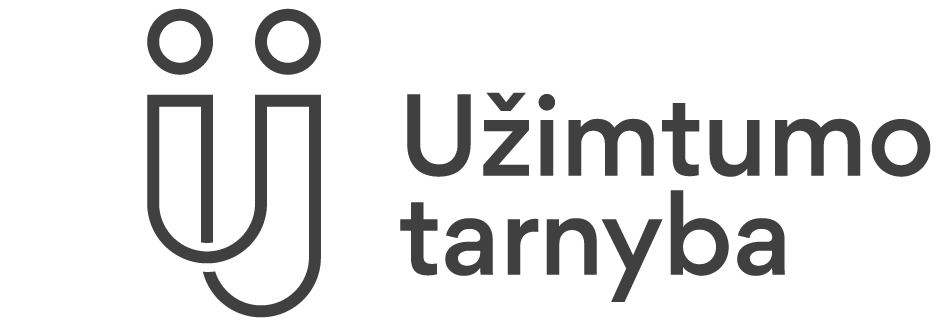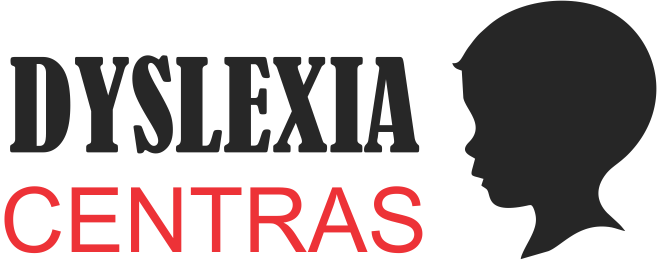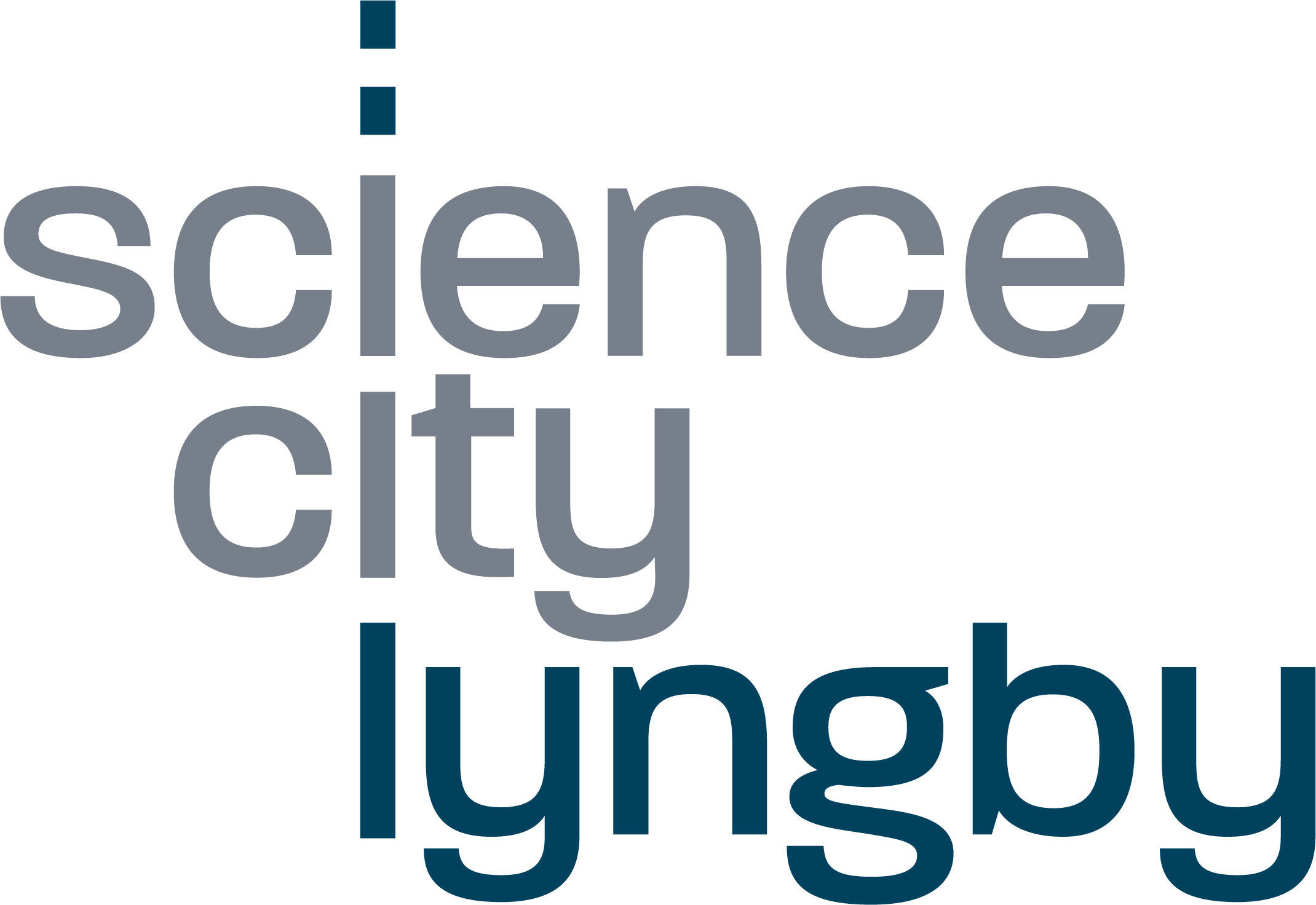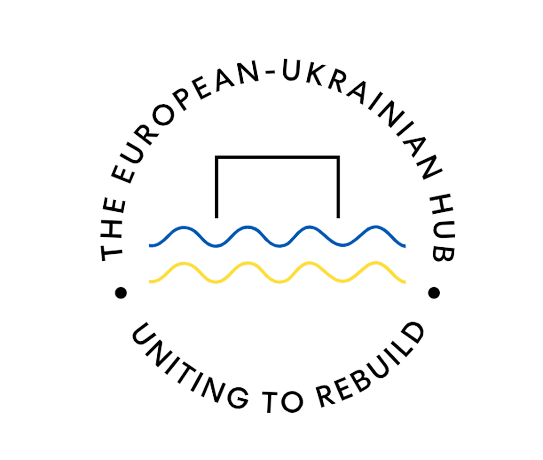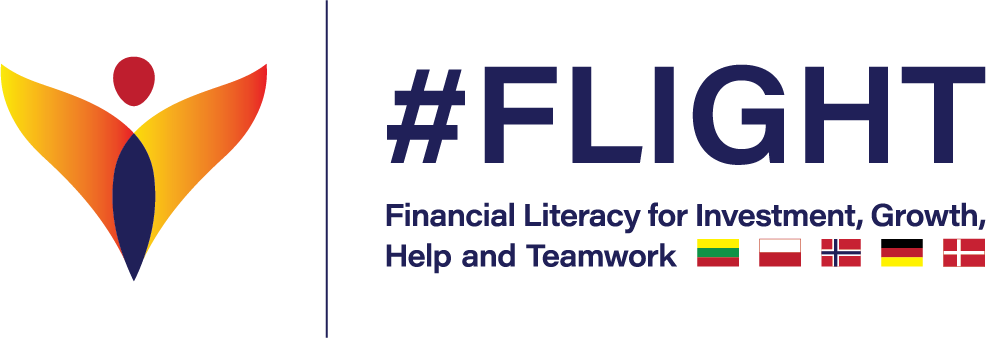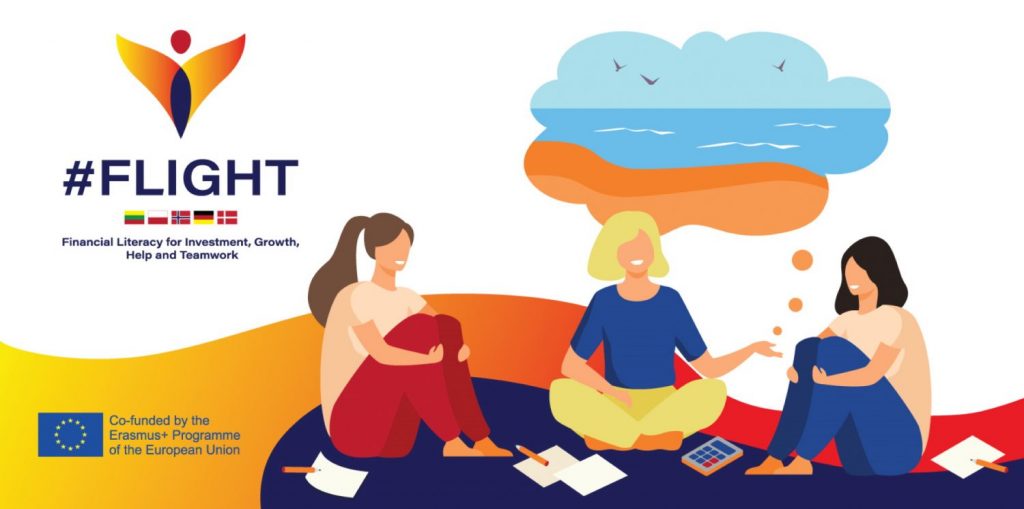
A project #FLIGHT, Financial Literacy for Investment, Growth, Help and Teamwork, finds it vital developing digital finance skills of Eastern European female expatriates for their better socio-economic inclusion into host communities, effective self-employment, financial independency as well as sustainable saving and investment patterns in Digital Age.
Digital financial literacy (DFL) becomes an increasingly important aspect of adult education for the Digital Age, especially in a COVID-19 ravaged world where women find themselves among most vulnerable groups due to she-cession, a gender-based withdrawal from labour markets around the world.
If You are women, she-cession makes it even bigger priority to manage Your own income, savings, insurance, investments and other economic activities in smart and safe way. Digitally and financially literate women are more skilled, resilient and self-confident, and therefore more successful in securing safe and sustainable financial future for themselves, their children and families, thus reducing their poverty risk. With the help of #FLIGHT they will be able to have a higher level financial sophistication to make effective use of fintech products & services, avoid miss-selling, frauds such phishing, hacking or romance fraud, unauthorized use of data, discriminatory treatment and other costly mistakes.
The main inspiration on the #FLIGHT came from the financial behaviour and saving habits of the Eastern European women. These are highly dependent on the economic maturity of the state expatriates come from, their individual financial literacy skills, the accumulated wealth, and the socio-economic policy measures hosting country imposes. For these reasons, the countries of the EU have quite significant structural differences, with the citizens from Eastern European member states or those outside the EU exhibiting poor diversity in the structure of the financial assets. This is determined by painful historical experiences of post-soviet societies. The digital financial market instruments are still a source of concern and fear for many, and they are choosing investments that can be grasped and made easier to understand, e. g. real estate or low-interest bank deposits.
With its 1st objective, the project is about to improve overall DFL of female Eastern European expatriates, especially settled down in geographically remote areas of Norway and rural ones in the rest partnering countries. Three training curricula (intellectual outputs) will be developed on DFL improvement for participant personal needs and/or self-employment (IO1); on investment, especially eco/sustainable/green one, and on increasing one’s level of personal risk tolerance (IO2); on digital identity safety and fraud, with an innovative tool for romance fraud simulation, based on human psychological patterns (IO3).
All the above-mentioned curricula will undergo intense piloting in a Help club (IO4), an informal network for female expatriates’ mutual support, including, but not limited to psychological one, sharing and caring, and teamwork in practising in saving, investment, self-employment, effective professional networking and other economic activities.
These will represent the 2nd objective that is focused on providing female Eastern European expatriates with better opportunities for their deeper socio-economic inclusion into host communities as all training and piloting will be in local official languages, with participants expected to have German/Danish/Polish/Lithuanian/Norwegian level A2 as minimum. In addition to supplementary tools developed by Partnership within the project framework, an ©Online Personal Risk Tolerance Test and © Romance fraud simulation Tool, the combination of digital financial training along with practicing local official language makes the #FLIGHT deliverables unique and innovative.
Associated partners
